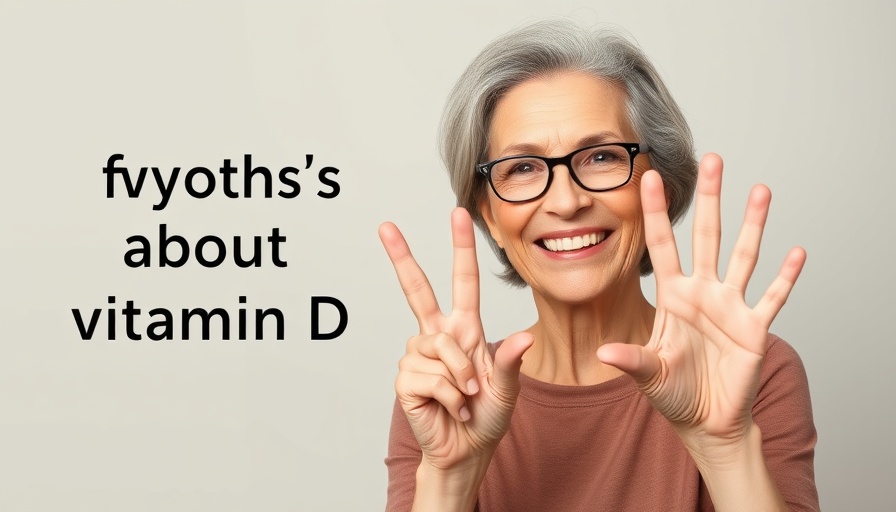
The Truth About Vitamin D and Aging
As we age, many of us start to worry about our nutrient levels. One nutrient that consistently comes up in conversations is vitamin D, known for its pivotal role in bone health and immune function. Common myth holds that our bodies become less efficient in absorbing this essential vitamin as we grow older. However, Dr. Michael Holick challenges this notion in a recent interview, saying, “Aging does not decrease your ability to absorb vitamin D.” His insights reveal how our skin may produce less vitamin D due to thinning, rather than an overall decline in absorption ability.
In 'Medical Doctor Clarifies 5 Vitamin D Myths', the discussion dives into common misconceptions surrounding vitamin D, exploring key insights that sparked deeper analysis on our end.
Exposure vs. Supplements: What Do You Need?
Vitamin D naturally synthesizes when our skin is exposed to the sun; thus, one might wonder how much sunlight suffices for optimal levels. Dr. Holick mentions that elderly individuals can, indeed, boost their vitamin D levels through sunlight, suggesting that simple outdoor exposure can make a significant difference. However, considering modern lifestyles, many people are not getting enough sun. That’s why Dr. Holick advocates for vitamin D supplementation, especially for those who may find their natural exposure insufficient.
Dispelling Myths: Bathing and Vitamin D Synthesis
One persistent myth states that bathing after sun exposure could wash away vitamin D. Dr. Holick presents a refreshing counterargument, asserting, “You cannot wash vitamin D off your skin or from your cells when you're exposed to sunlight.” The production of vitamin D occurs in living skin cells, making the notion that washing after sun exposure could decrease its levels entirely unfounded. This invites us to reconsider our post-sun exposure routines and re-evaluate hydration and aftercare methods without fear.
Fats and Vitamin D: What’s the Link?
Another commonly held belief is that vitamin D needs to be taken with fats for better absorption. Dr. Holick debunks this myth, sharing that studies show vitamin D is absorbed effectively even on an empty stomach. He explains that the absorption in skim milk is surprisingly better compared to whole milk, due to fat content’s impact on vitamin efficiency. With facts like these, it’s clear that understanding nutrient absorption can be more nuanced than originally thought.
The Longevity of Natural Vitamin D vs. Supplements
Dr. Holick shares an interesting finding regarding the longevity of vitamin D in the body. When synthesized naturally through skin exposure, vitamin D lasts two to three times longer in the bloodstream compared to when it is taken orally. This interesting perspective highlights the importance of ensuring adequate sun exposure, particularly for those committed to longevity and overall health.
Importance of Magnesium and Calcium
While many believe magnesium plays a crucial role in absorbing vitamin D, Dr. Holick clarifies that these nutrients serve different purposes. He emphasizes magnesium’s importance for bone health, suggesting that seniors should consider supplementing magnesium alongside vitamin D. This is especially important for maintaining overall wellness in older populations.
Actions You Can Take
Simply understanding these aspects of vitamin D can empower you to take control of your health. Aim to get moderate sun exposure where possible, consider vitamin D supplementation especially in winter or cloudier climates, and ensure you're consuming adequate magnesium and calcium. Such simple yet effective measures can significantly enhance wellness, particularly as we navigate the aging process.
 Add Row
Add Row  Add
Add 




 Add Row
Add Row  Add
Add 


Write A Comment